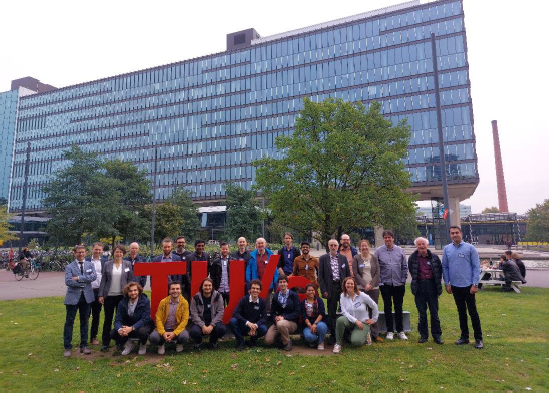 Door: FHI, Federatie van Technologie Branches
Door: FHI, Federatie van Technologie Branches The European Union (EU) has launched an initiative to combat climate change by implementing the Green Deal, a policy aimed at making the European Union climate neutral by 2050. This initiative signifies a pivotal moment in our efforts to preserve nature for the future. Sustainability is of utmost importance, and we all yearn for a safe environment. Every business within the EU is striving to align with this new deal.
The PARASOL project stands as one of the pioneering initiatives in Europe to address the new Safe and Sustainable by Design (SSbD) framework outlined in the EU Green Deal. As a part of the Marie Sklodowska-Curie Actions (MSCA) Doctoral Network, Parasol is committed not only to the training of doctoral candidates but also to driving the field of Shielding Solutions for Mobility towards a safer and more sustainable future. Let us delve into the project's goals, the SSbD approach, and the network's key objectives, which are supported by a consortium of six universities across the EU and nearly 20 industry partners.

The SSbD Approach to EM Shielding
The heart of the Parasol Project lies in its introduction of the Safe and Sustainable by Design (SSbD) approach to shielding for mobility. It aims to establish new Key Performance Indicators (KPIs) to ensure the safety and sustainability of shielding solutions in the realm of mobility. PARASOL will create a long-lasting, multidisciplinary academic-industrial network for doctoral training, bringing together leading European industry and academia to develop innovative shielding solutions for various modes of mobility, including cars, trains, planes, and ships, with the SSbD approach at its core.
The project's success is underscored by its commitment to completing the entire design cycle, from the production of materials to rigorous testing both before and after integration into the final product. Several Societal Challenges (SC) and technological challenges (TC) will be encountered along the way, resulting in the formation of threeS/T Work Packages (WPs) to be addressed within the context of the research and training program. By upholding the highest standards of quality and safety at every stage, Parasol is driving innovation and paving the way for a future where mobility is not only safer and more reliable but also environmentally sustainable.
Kick-off Event
The Parasol project embarked on its journey with a kick-off event on the 9th and 10th of October 2023. This inaugural gathering set the stage for aproject that aims to reshape the landscape of doctoral education in Europe and beyond. During this event, Dr. Anne Roc�h, coordinator of the Parasol, introduced the story behind the project and its logo together with itscore mission, which is to foster innovation and creativity through a multidisciplinary and multicultural approach.Last but not least, some representatives from industrial section of the Parasol consortium presented their cutting-edge technological solutions for the shielding and more.
The kick-off event featured a series of engaging activities, from exploring the Innovation Space to team-building exercises, and along witha hands-on workshop on smartphone-based research documentation. As one of the example, Shielding Effectiveness measurements of cables in GTEM Cell has been filmed.The event was also about building relationships, as participants had the opportunity to get to know one another over games, drinks, and a shared dinner. This event marked the beginning of the Parasol project,promising a future of collaborative research and innovation.
Can you See it?
As already been told there is a story behind the logo. Three concepts in one: technology, sustainability, and movement. Can you spot it?

Article written by: Furkan Sahin, Sadegh Barzegar,Dr.Sander Bronckers,Dr.Anne Roc�h



